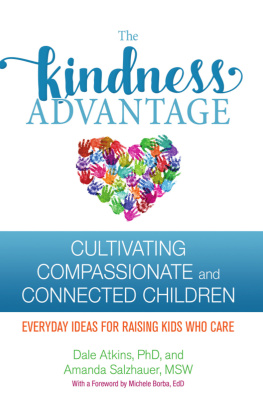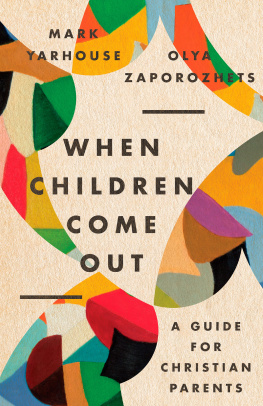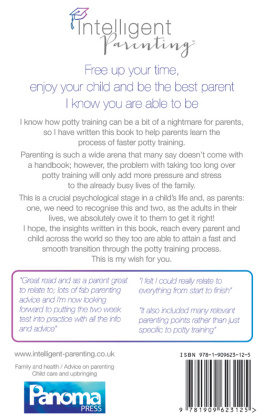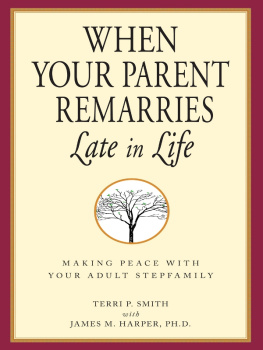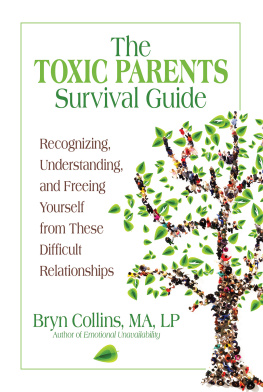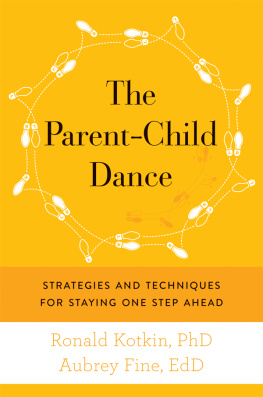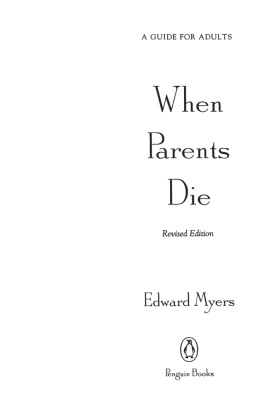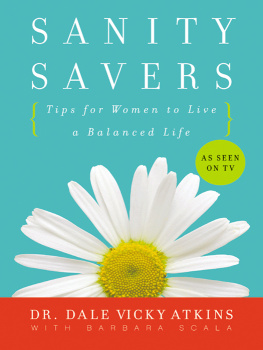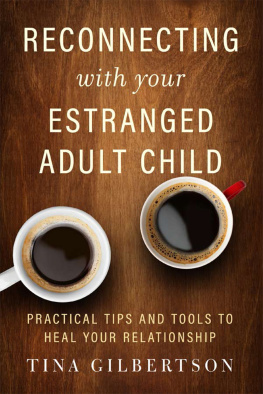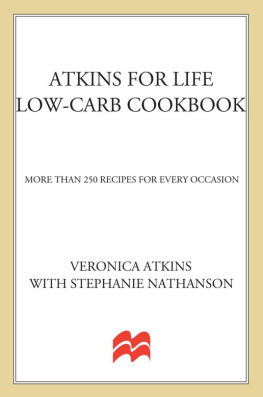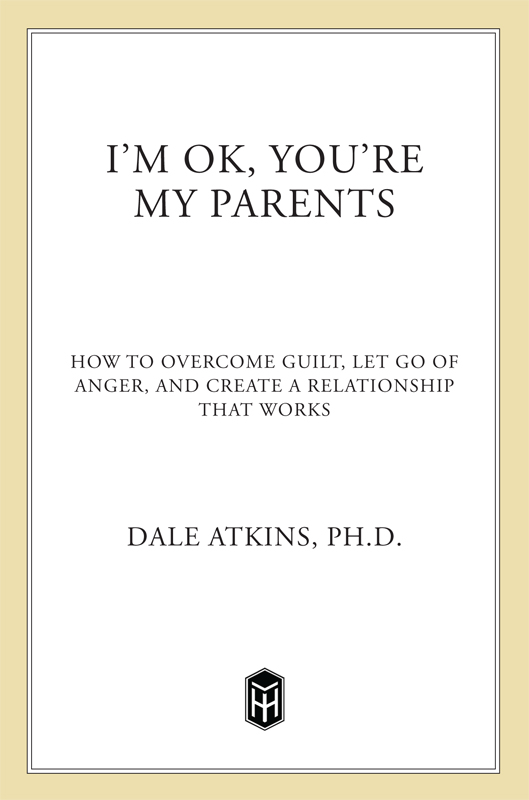
The author and publisher have provided this e-book to you for your personal use only. You may not make this e-book publicly available in any way. Copyright infringement is against the law. If you believe the copy of this e-book you are reading infringes on the authors copyright, please notify the publisher at: us.macmillanusa.com/piracy.
CONTENTS
To Sylvia and, in memory, Jerry, and to Nettie, all parents who seemed to know these lessons without being taught
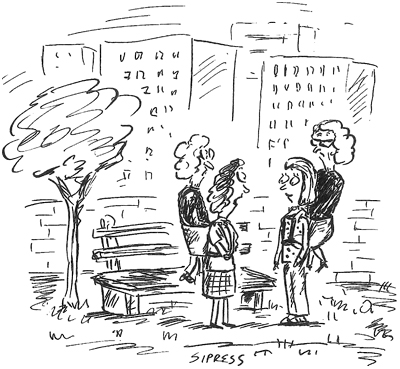
Seventy-seven. How about yours?
Introduction: Sit Down Before You Read This
Here are a few remarkable statistics about how long your parents may be around. If you are thirty years old and your parents are in their fifties, scientists say at least one of them will almost certainly live well into their eighties. There is even a 35 percent chance at least one of them will live past age eighty-five. If you are in your forties, and your parents have made it past the heart attackcancer watermark of sixty-five, they now have a 55 percent chance of the living past eighty-five. Theres even a 30 percent chance they will hit ninety.
Theres more: those statistics dont even take into account medical advances likely to emerge in the next few years. Longevity experts at the Centers for Disease Control believe that by 2020, average life expectancy may hit one hundred, which means that your relationship with your parents may well be the most enduring tie you will ever have.
If that isnt eye-opening enough, try this one on for size: 75 percent of us will wind up with significant caretaking responsibilities for at least one parent over the course of our life. The average length of time we will wind up taking care of that parent is twenty yearslonger than we will take care of our children.
If these facts put an ear-to-ear grin on your face, send a warm rush through your extremities, and make you want to run out and drop a Hallmark card in the mail to your folks, youre very lucky. You are among the fortunate few who have stress-free relationships with their parents.
But if these statistics worry you, if they twist your stomach into a knot the size of softball, usher in a throbbing headache, or simply make you feel a bit lightheaded, read on. If the thought of having to deal with your mother or father (or both!) for another fifteen or twenty yearsthe guilt-laced, late-night telephone calls, the strained holiday meals, the constant requests from one or both of them that never seem to endmakes you want to pack your bags and flee to Micronesia under an assumed name (or just crawl up under the covers), this is the book for you.
If you cannot imagine, with good reason, how you will psychologically handle taking care of your parents as they age when you have enough problems dealing with them now, read on.
But first: remember, you are not alone. Youre in good company and lots of it. If you doubt that, try this little experiment: mention to a handful of acquaintances or colleagues the longevity statistics Ive just conveyed. You may be surprised at how many of them turn a bit pale, make a weary stab at black humor, or simply change the subject.
Parental relationships are hard for almost everyone. They are, by definition, challenging, and not just because they are weighted with baggage from when you were young, but because they continue to evolve, to become even more complicated as you gain experience, marry, have children (or not), grow older yourself. The intricacies and thickly woven threads, as Thomas Moore called them in his book Care of the Soul, inevitably get denser and harder to sort out.
A generation ago, aging parents (think of your grandparents) tended to be humble folk who had come from little or nothing and later lived quietly on a fixed income. Now our parents are likely to have lives as complex as our ownmore divorces, more money, more confidence, louder voicesa reality that can create as many problems as it solves.
But even though there is no simple relationship with a parent, that doesnt mean that relationship cant be simplified.
In my nearly twenty-five years as a therapist and during my long career as a television commentator and seminar lecturer, Ive dealt over and over with grown men and women who are still struggling daily with their feelings toward their parents, still trapped in a cycle of fear and frustration, still psychologically embroiled with the people who brought them into the world. Scatch the surface of most of your peers, and I bet youll find theyre just like youscared and discouraged to face how long their parents will likely be around because one of the defining aspects of their lives is how tightly they are entangled with them and how reliant they are on their approval, their advice, their money, despite the unhappiness and confusion that sometimes brings.
Even those who come to me for therapy or attend my seminars for other reasonsthey are conflicted about their marriages, frustrated by their inability to find love, or confounded by their foundering careersoften eventually trace those negative patterns back to as-yet-unresolved parental issues.
Lets be clear here: Im not talking just about people who come from severely pathological families with a legacy of incest, emotional destruction, or physical violence. Im not referring merely to those with so-called toxic parents who mount campaigns of terror that leave their victims virtually unable to function. Those are the extreme cases that have gotten so much attention on television and in self-help literature, but they are not the norm.
Im talking about the rest of us. Our relationships with our parents are not that black-and-white. Our childhood was more nuanced than a reign of terror. It may not have been toxic, but it probably wasnt exactly a health food buffet either. Its more likely that we grew up with some love and caring, but also a level of manipulation and discomfort that continues to this day. We may honestly be able to say we love our parents and want their lives to be happy, but are stymied by a nagging question: Can our own lives be happy at the same time? Its the hangover of those conflicts that is disrupting our lives now, as adults.
Your interactions with your parents may sometimes seem to have you on a treadmill going nowhere but the House of Pain, but in reality its not a treadmill at allits a complex dance. You and your parents, locked in a painful tango, each of you saying things and doing things over and over that only make matters worse.
Unfortunately, as we get older, that dance can become a stranglehold. Personality traits tend to get exaggerated with age, and your parents are probably no exception. (Guess what? Neither are you.) The particular problems run the gamut, reflecting our individual stories, but the same themes echo: guilt, remorse, anger, and frustration. The supreme unifier is a feeling of powerlessness, the ultimate curse of childhood itself. You may feel there is no decent answer and little hope of things improvingthat anything you do will only make things worse or have no effect at all.
You may find yourself driven crazy by parents who insert themselves into every aspect of your life. Even though you know their heart is in the right place, you choke back the sensation of being smothered. You may deal with your overwhelming feelings by keeping your parents at bay, even moving across the country, but you may suffer for the pained distance. You may really love your folks, but, well, just cant stand being around them for more than an hour or two. Or the mere mention of your father or mother may cause your throat to seize up, your heart to race, your palms to grow instantly clammy.


